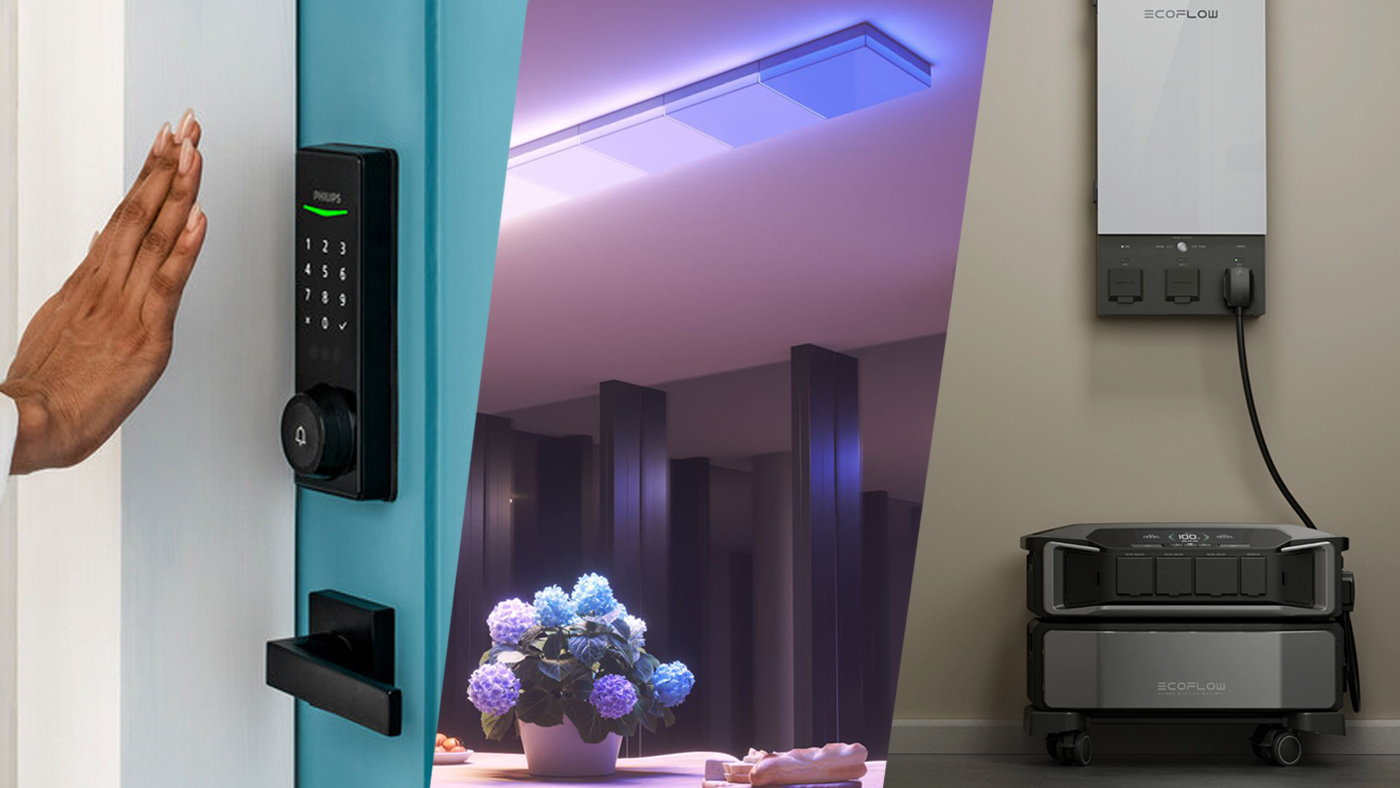
Smart home tech has long been a mainstay of the Consumer Electronics Show – and that's proven to be the case again at CES 2024. From sci-fi smart locks to more eccentric ideas like AI pillows, the show offers a glimpse of some of the tech flourishes that could be heading to your home this year.
After dashing around the CES show floor and almost indecently exposing ourselves in Kohler's new smart showers, we've rounded up all of the announcements that are worthing knowing about here. Some of the headlines include next-gen smart locks, digital shower systems, and speakers that are disguised as picture frames.
Still, those are just the start of some of the smart home innovations we've stumbled across at the world's biggest tech show. Elsewhere, we've also tripped over some impressive robot vacuums from the likes of Roborock and Matic. Naturally, there have also been some stranger ideas like the anti-snoring pillow.
Looking to spruce up your home with some new tech this year? Here's our pick of the CES 2024's best smart home offerings so far.
Smart security
Lockly Visage
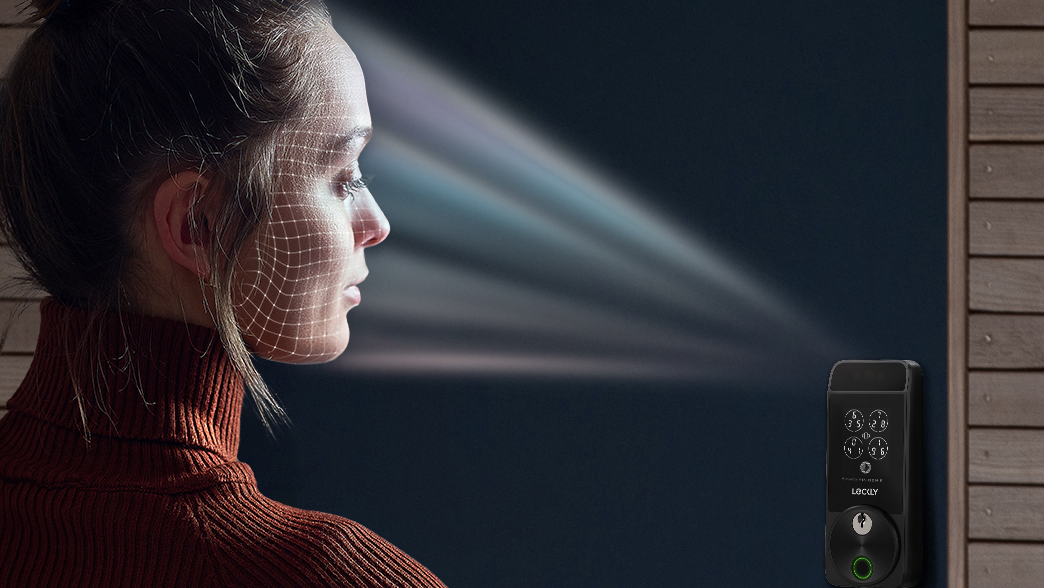
In the age of Face ID if feels pretty backwards to still be shoving a metal key into our front doors to unlock them, but that could soon change. Lockly's new Visage smart lock ($349, around £275 / AU$520) has built-in facial recognition and can replace your traditional deadbolt.
If you'd rather not go quite that futuristic, the Visage will also support Apple HomeKey when it gets Matter certification, letting you unlock your front door by tapping your iPhone or Apple Watch on the lock or using Siri commands. It's due to go on sale in the US this summer, with international availability yet to be announced.
Philips Wi-Fi Palm Recognition Smart Deadbolt
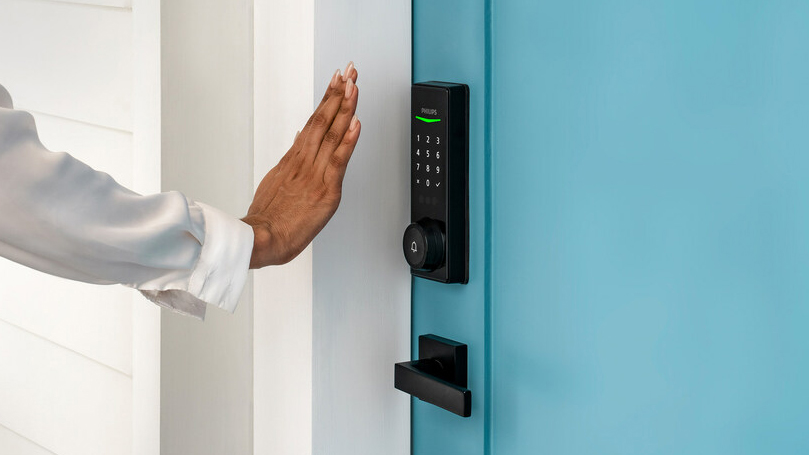
If you don't fancy using the Lockly Visage's face recognition to unlock your door, Philips had an interesting alternative at CES 2024 – the first smart lock with palm recognition.
The catchily-named Philips Wi-Fi Palm Recognition Smart Deadbolt ($359, around £285 / AU$535) works by detecting your unique palm vein pattern, which Philips says gives it "unparalleled security", and can store up to 50 of these palm patterns.
The lock also works with Alexa or Google Assistant, so you can check on its status with voice commands, and it acts as a doorbell, too. The sci-fi accessory will be going on sale in the "first half of 2024" in the US, though no international launch has been confirmed.
Smart home accessories
Kohler Anthem Plus
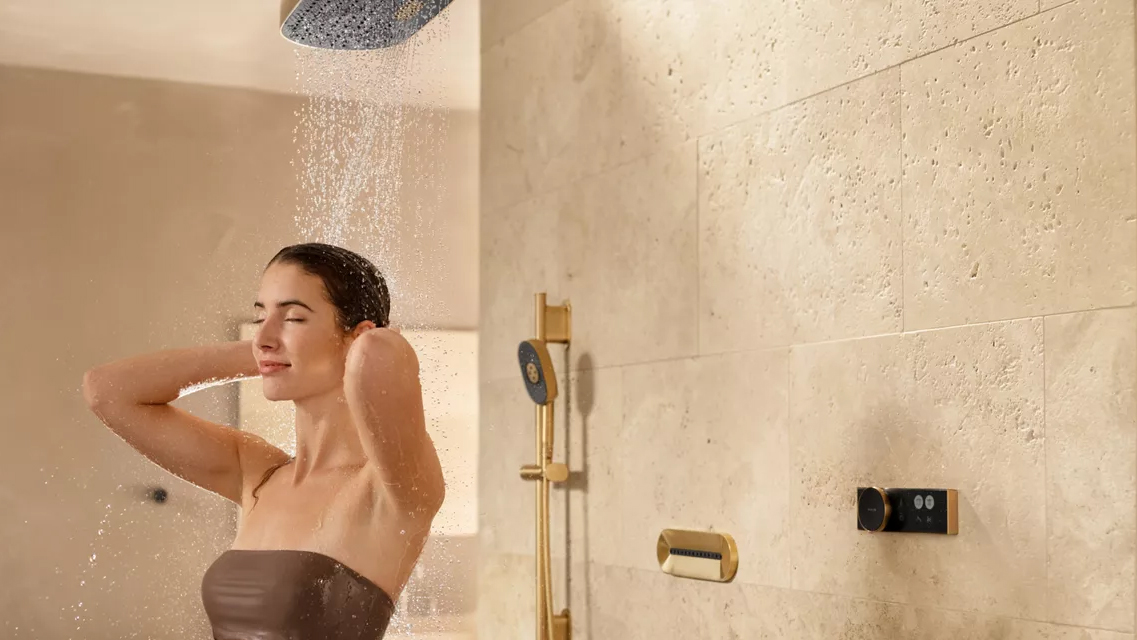
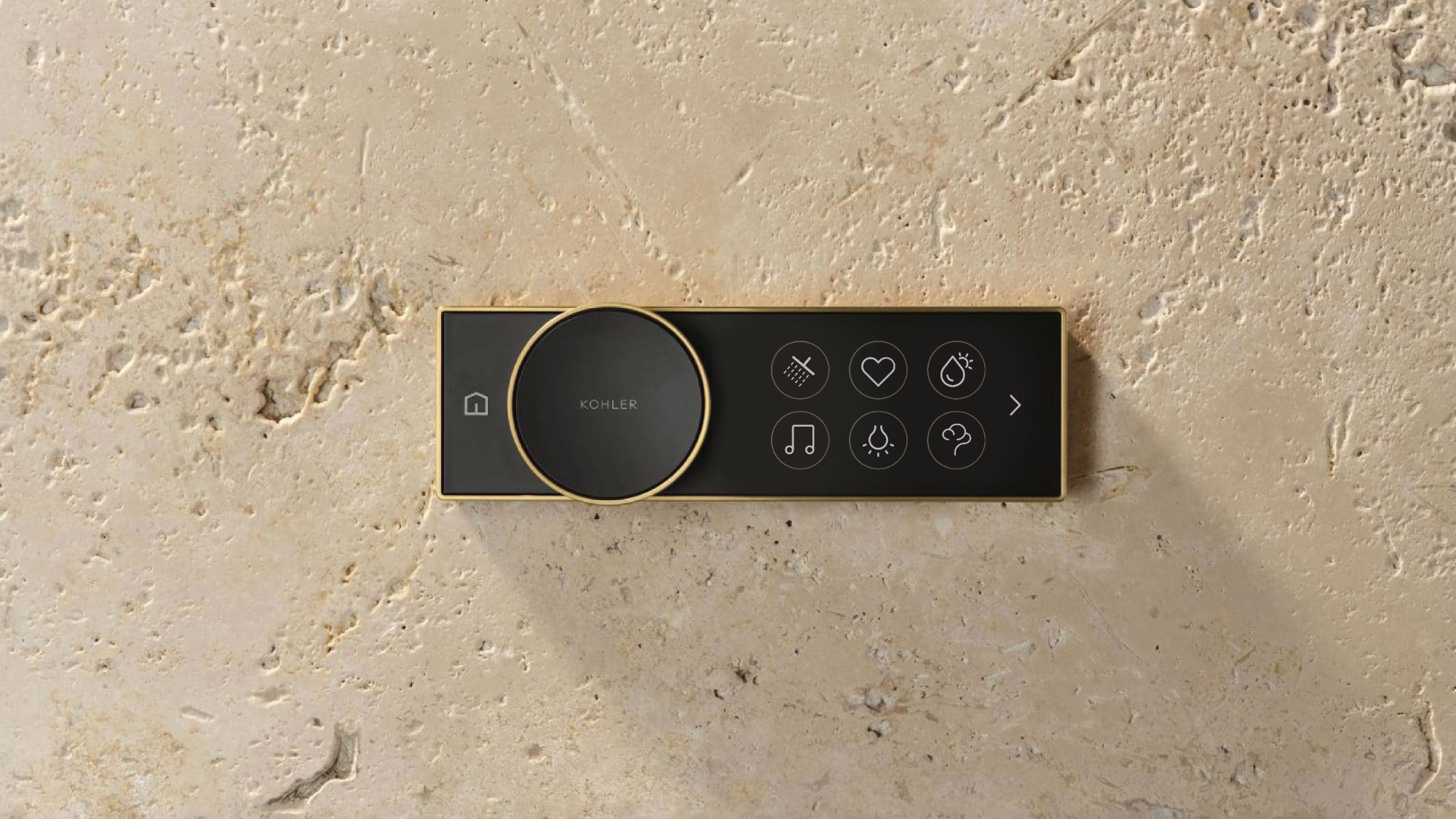
Kohler's 'digital showering' concept sounds like a recipe for electrocution, but we were mighty impressed with its Anthem+ Digital Control and System (starts at $2,800, around £2,200 / AU$4180) at CES 2024. It promises to serve up a multi-sensory showering experience that lets you customize the water, light, sound, and even the steam.
The controller mounts on a wall and has a touch-sensitive interface that lets you control most different shower types and also tweak the spray zones, if you're lucky enough to have one with those powers.
Naturally, it also connects to the Kohler Konnect app, which gives you voice control via Alexa and Google Home, and launches in February 2024. Frankly, there's a danger we might never leave the shower, so it's probably a good thing that it's so expensive.
Motion Pillow
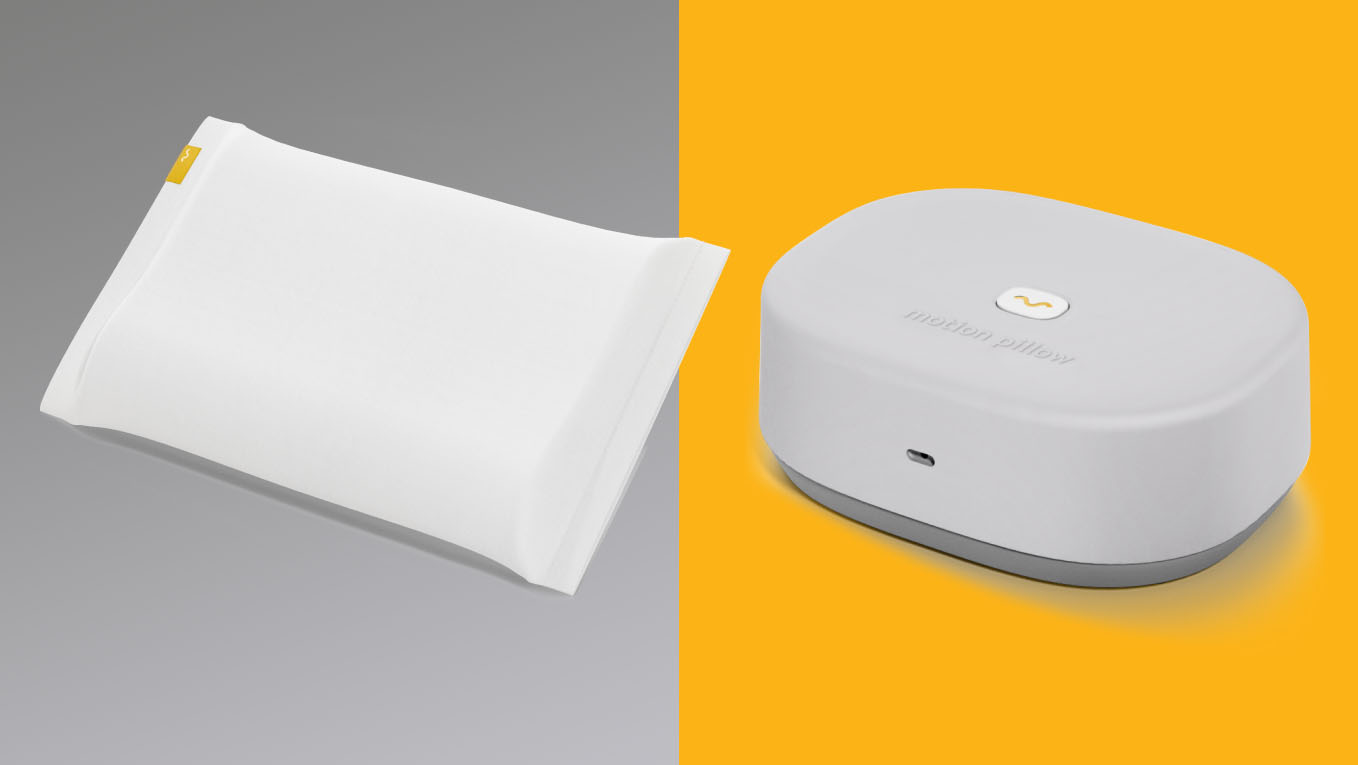
An AI-powered pillow might sound like tech overstepping the mark, but bear with us – what if we said it might stop you or your partner from snoring? That's the pitch behind the Motion Pillow ($420, around £330 / AU$630), which picked up a CES 2024 innovation award.
This inflatable pillow (don't worry, it's made of memory foam, like many of today's best pillows) is joined by a Motion System Unit, which identifies snoring sounds and will slowly inflate the offending person's pillow. This gently turns their head to the side, opening their airways to create some peace.
The companion app also handily gives you insights into your sleep as well as letting you adjusting settings, and the Motion Pillow is available to buy now (with a special CES 2024 discount).
Samsung Music Frame
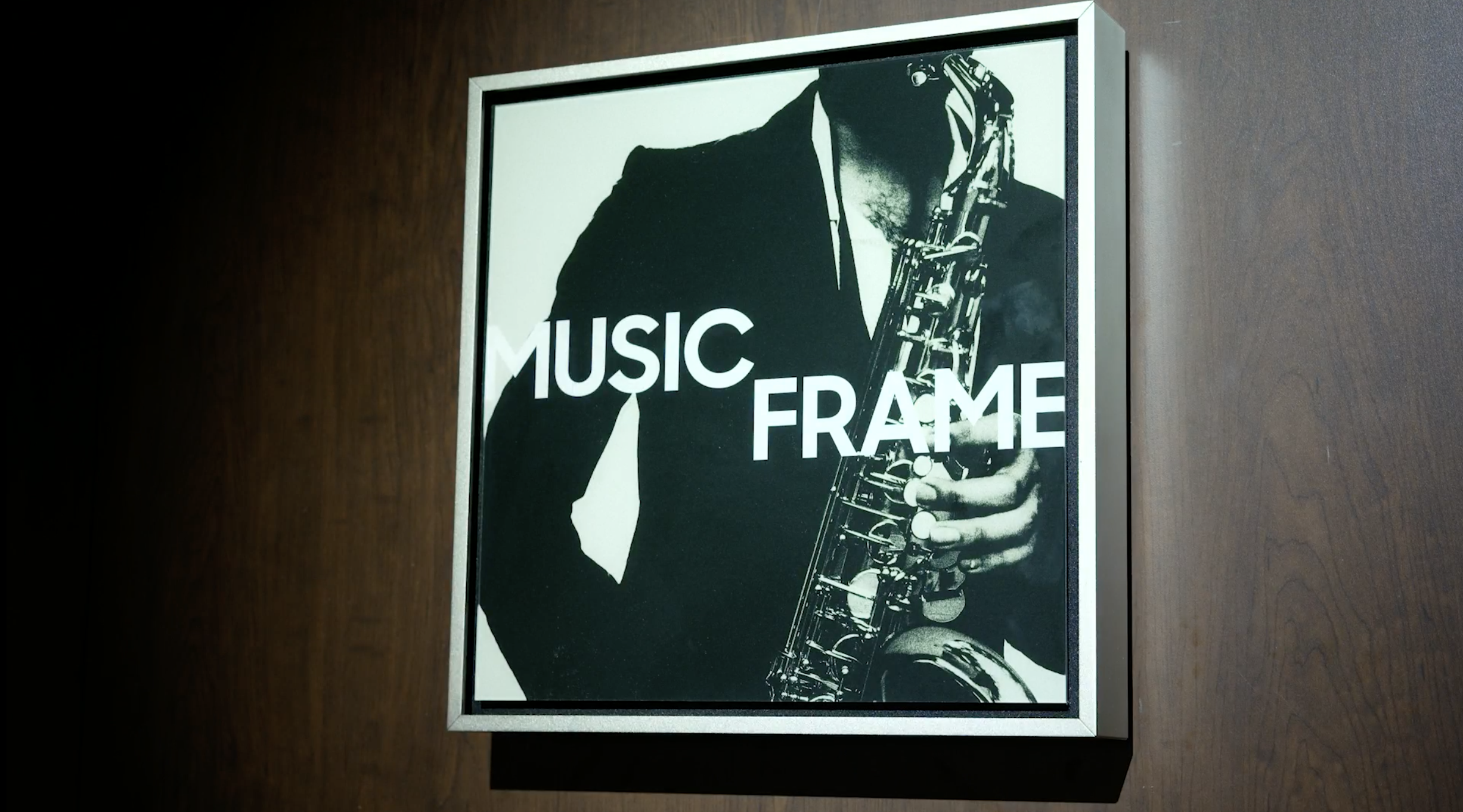
Like the IKEA and Sonos collaboration that produced the Symfonisk Picture Frame with Wi-Fi Speaker, Samsung has made an invisible speaker than can secretly pump out your tunes from behind your choice of photo or art.
While it's a shame there's no digital screen like the best digital photo frames, the Music Frame can act as either a standalone Bluetooth or Wi-Fi speaker, or as part of your home theater setup as a TV speaker, rear speaker or subwoofer.
In some ways, the idea is great – it's a space-saving bit of kit that hides technology from sight, which is what all the best smart home kit should do. But as TechRadar's Senior Audio Staff Writer Becky Scarrott argues below, it also breaks almost every rule of building of a good audio setup. There's no word on pricing or availability yet, but when the Music Frame does arrive, it's probably going to divide opinion.
- Read more: Samsung’s Music Frame speaker is both a great idea and a terrible one – here’s why I’m torn
Smart lighting
Nanoleaf Essential Matter series
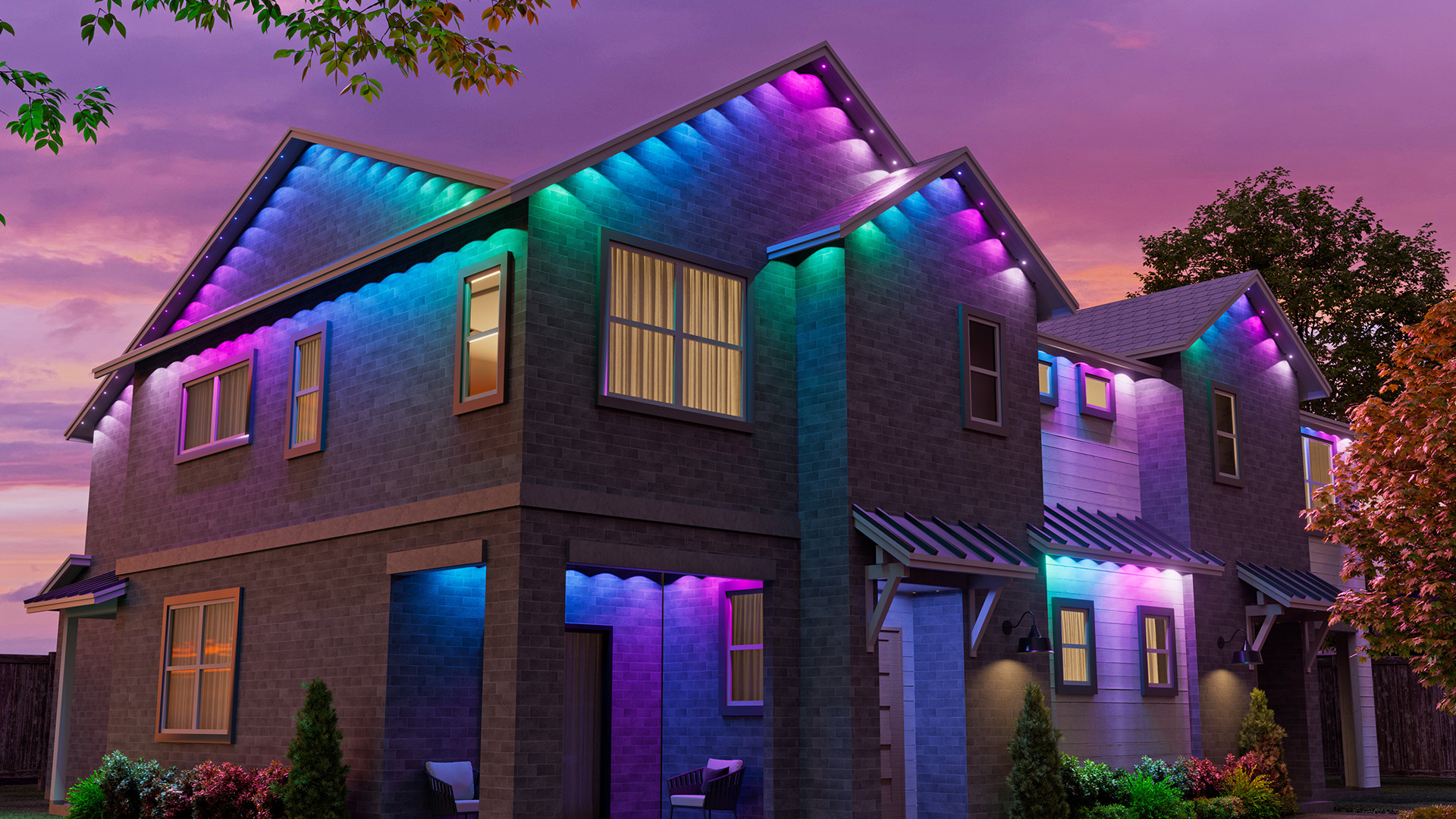
Nanoleaf makes some of the best smart lights around and it again lit up CES 2024 with a trio of announcements – including its first outdoor lights.
Its Essential Matter series consists of three models, with two of them being string lights that are designed to bring mood lighting to your back yard or balcony to create mood lighting. Nanoleaf's Permanant Lights, meanwhile, are designed for tricky-to-reach areas on your house like above windows. They're all due out in Spring, though there's no pricing yet.
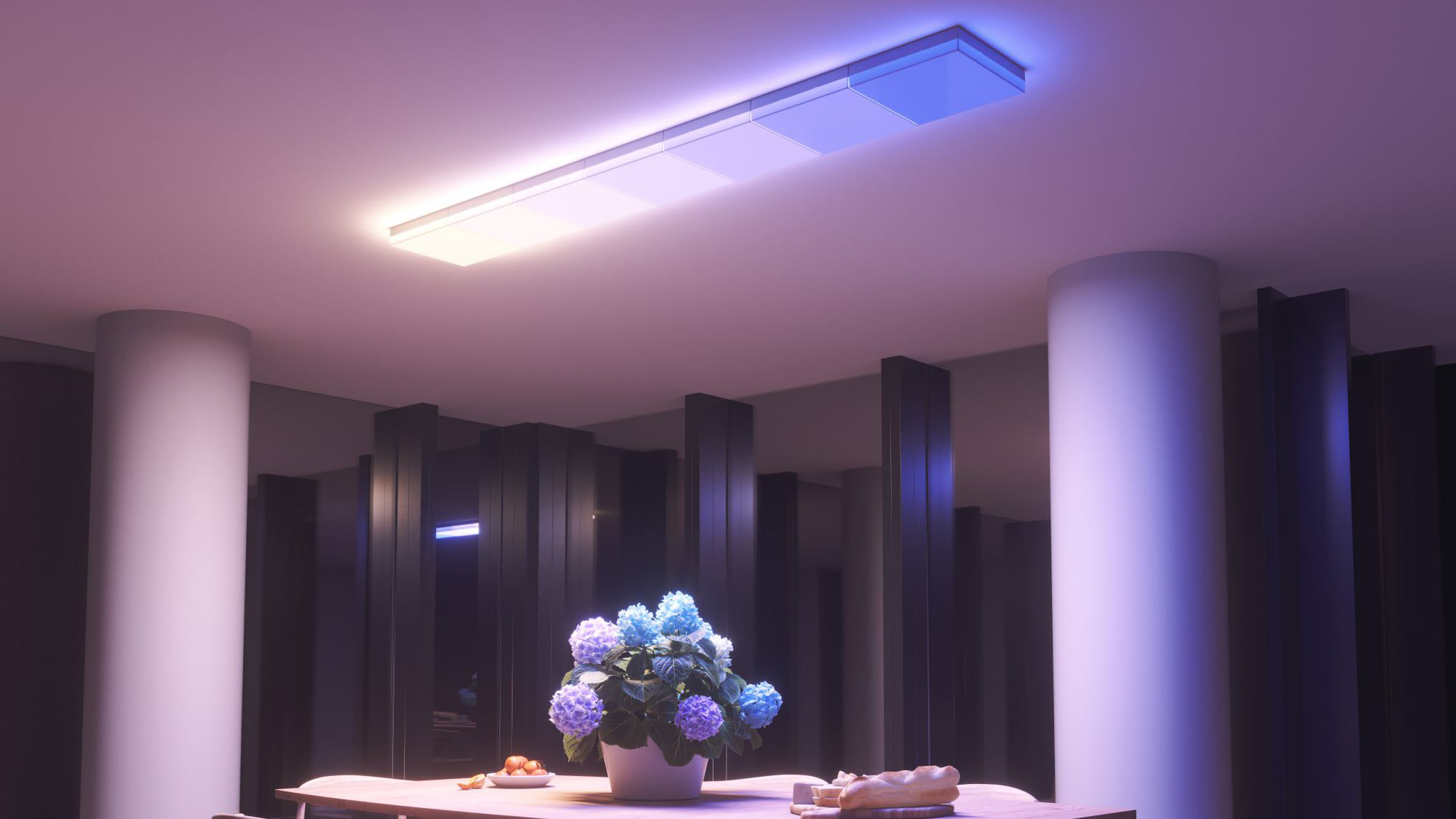
That wasn't the end of Nanoleaf's announcements, though. Arguably the most interesting is that the Nanoleaf Skylight (above), which it announced back at CES 2023, is finally available for pre-order on Nanoleaf’s website for $250 (a three-pack) with an Expansion Pack available for $70, with shipping in late January 2024.
Govee AI Lighting Bot
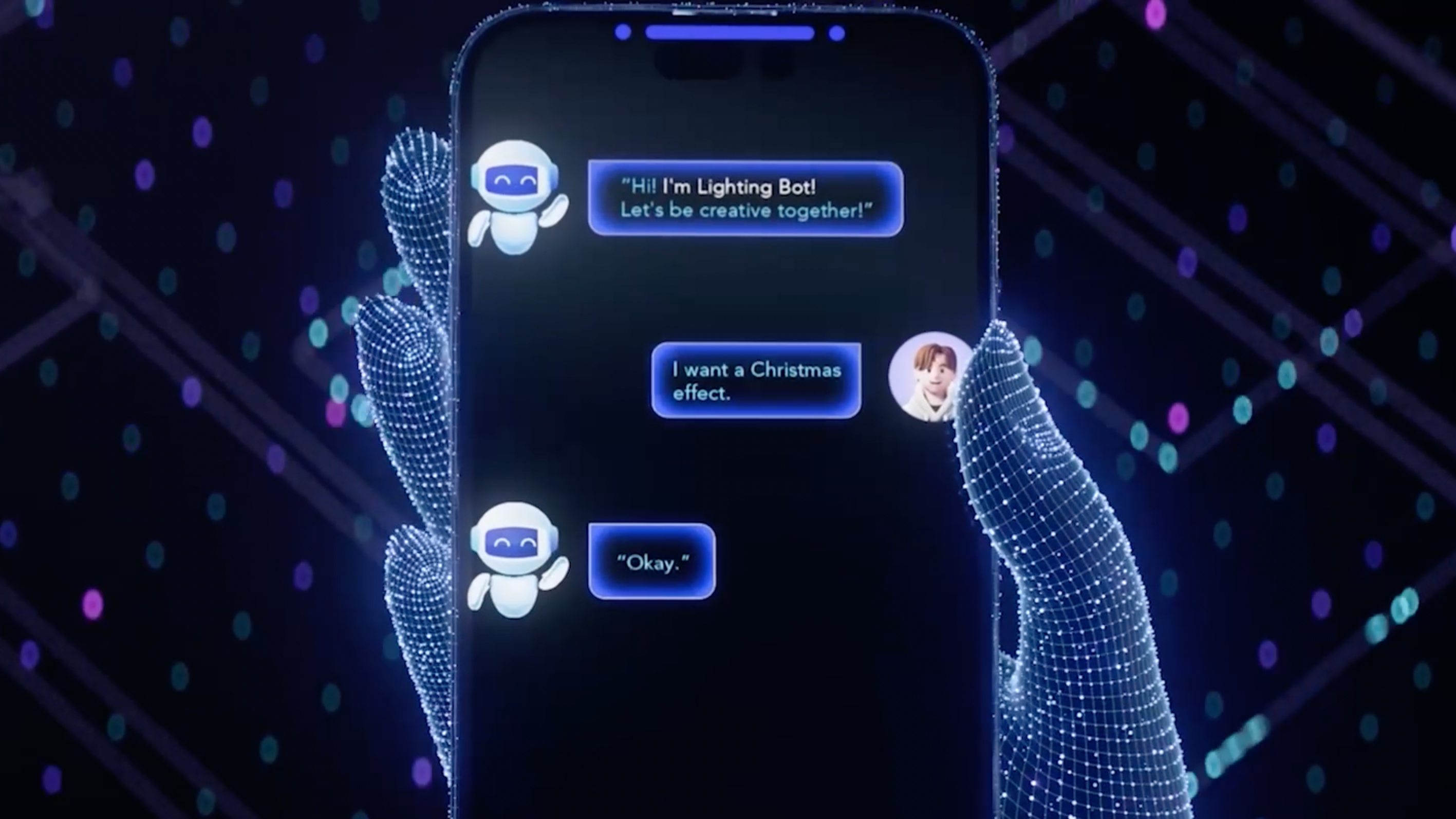
We're currently pretty obsessed with Govee's Curtain Lights and the brand has now previewed a new AI-powered way to interact with its smart lights at CES 2024.
Called the AI Lighting Bot, the system is currently in its early development, but promises to give you a chatbot assistant that answers natural language requests (for example "I want a Christmas effect") and save you from manual smart light tweaking.
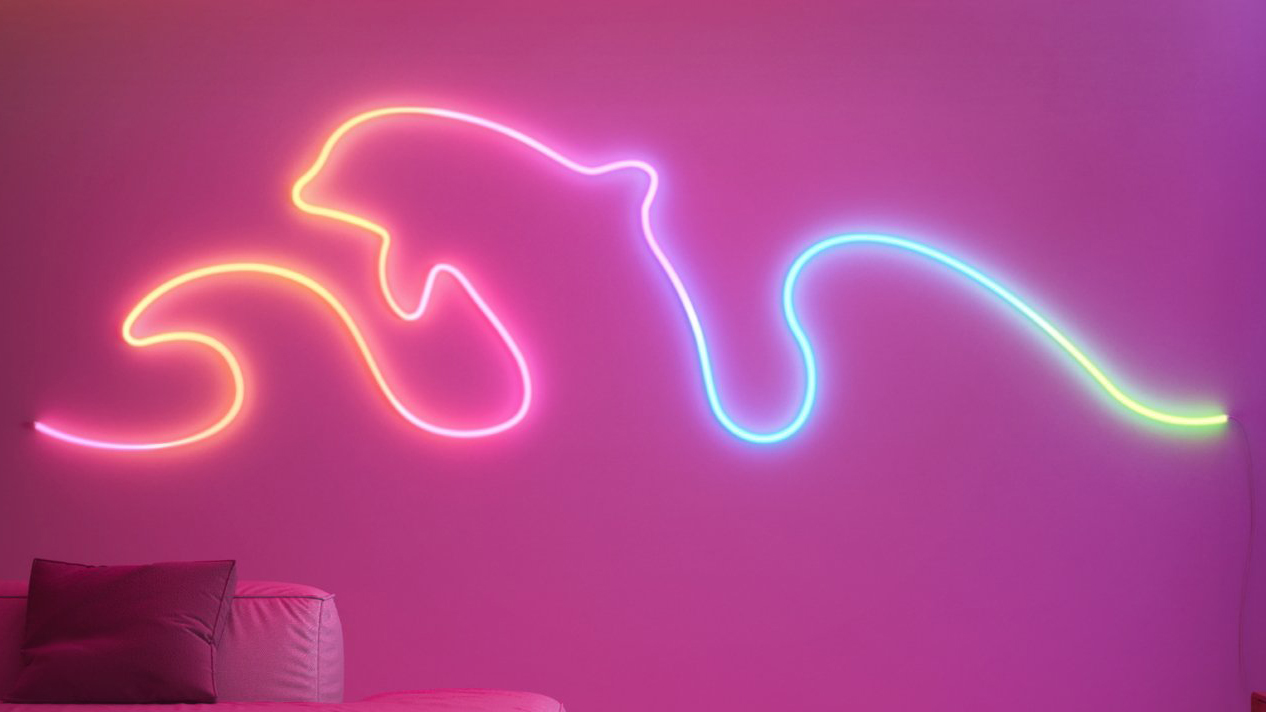
While that sounds interesting, its two less nebulous announcements could have a bigger impact on your lighting in 2024. The Sync Box Kit 2 is designed for gamers who want lights that react to on-screen action and combines an RGB strip, two light towers and an HDMI box.
The Neon Rope Light 2, meanwhile, is a flexible smart light that can bend and flex to your desired shape and be modified using its companion app. Both the Sync Box Kit 2 and Neon Rope Light 2 are due out in the first half of 2024, but unfortunately there's no pricing yet.
Robot vacuums
Roborock S8 Max Series
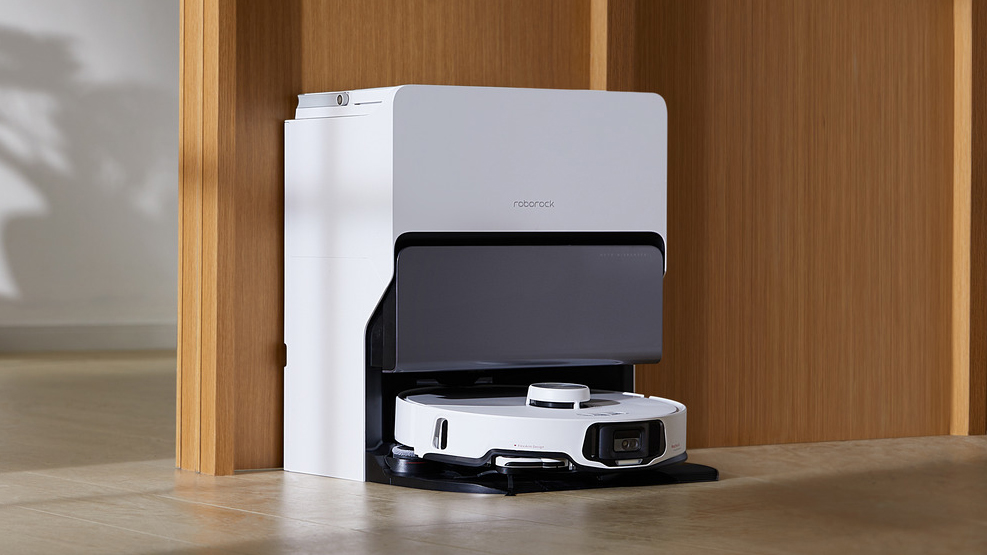
iRobot and Eufy currently dominate our guide to the best robot vacuums, but Roborock announced some new contenders at CES 2024 that could shake things up – its new S8 Max Series.
The high-end robo-vacs come with a new "high-speed sonic mopping" system and some serious suction power. The S8 Max promises 8,000Pa (pascals) of power, while the higher-end promises 10,000Pa – considering that standard vacuum cleaners offer between 2,500-3,000Pa, both promise to give your floors a thorough clean.
Interestingly, both models also have a little robo-arm with a brush and mop that can reach into trickier spots. The pricier S8 MaxV model (costing $1,800, around £1,415 / AU$2,690) has AI for better obstacle avoidance plus a voice assistant, but if you don't those then the S8 Max might be better bet for $1,600 (£1,260 / AU$2,395). Both will be available in April 2024 in the US, with no international launch announced yet.
Matic robot vacuum
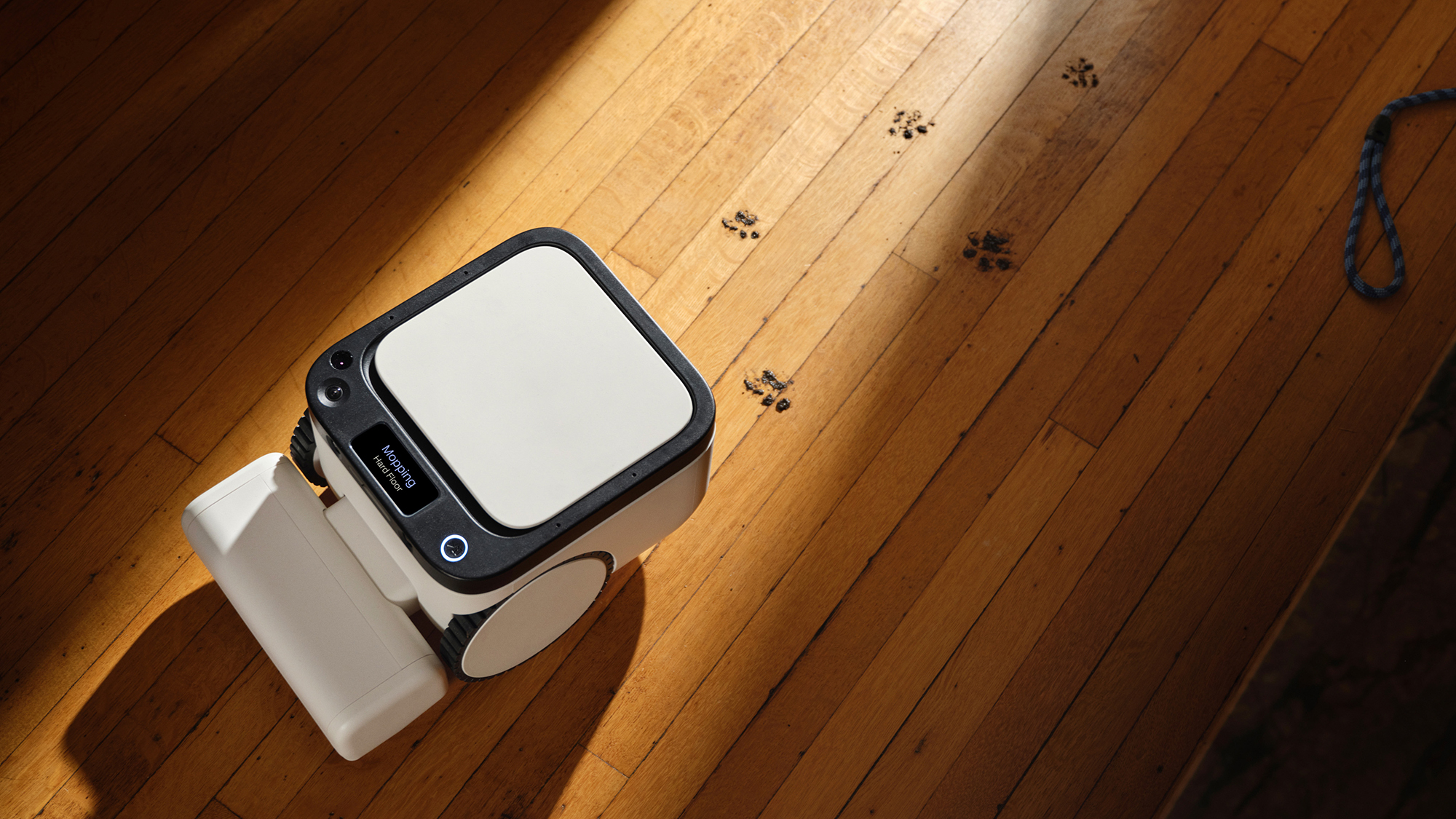
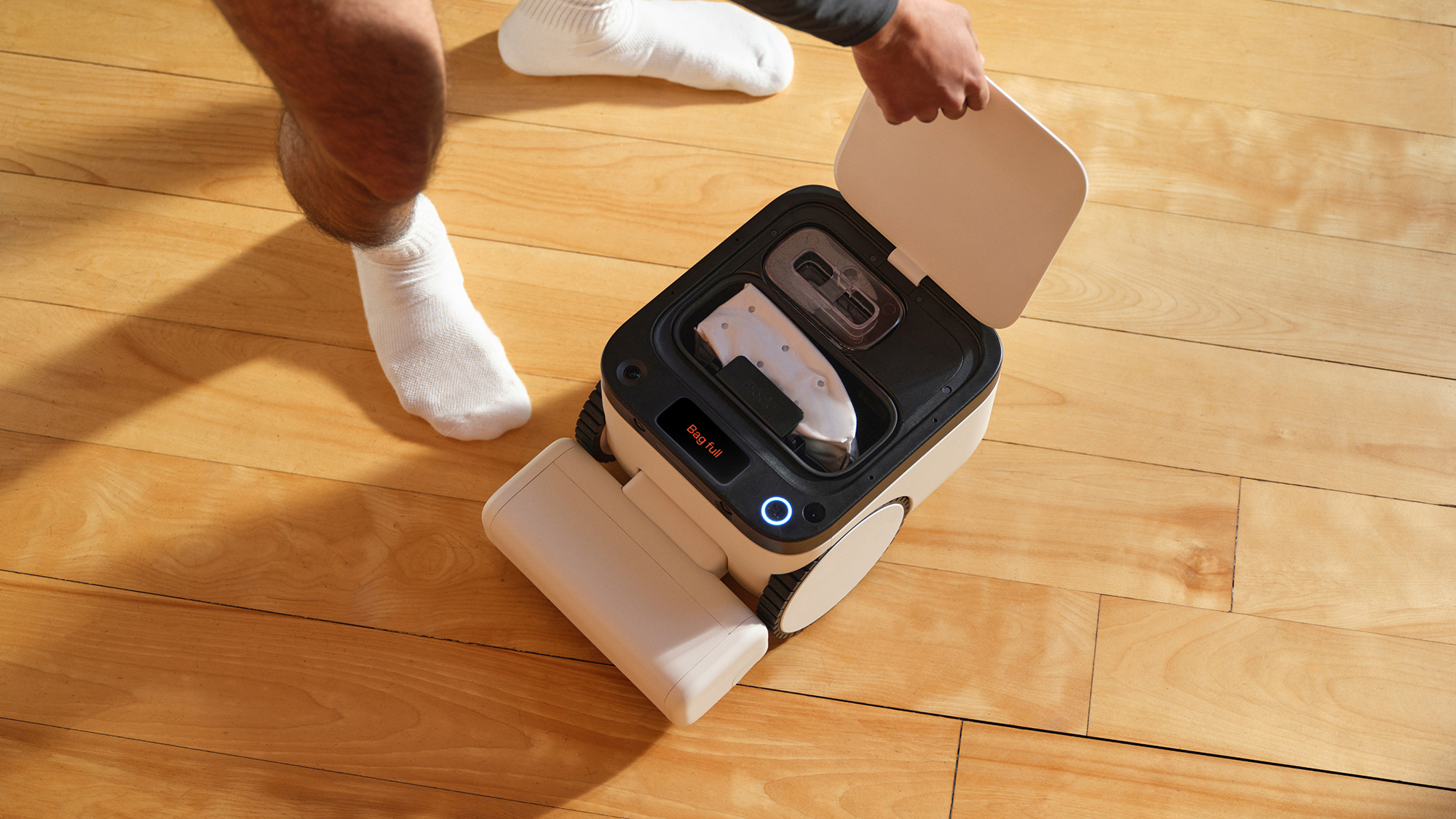
The Matic Robot vacuum isn't brand new, having launched with a subscription model in early 2023. But it has effectively relaunched at CES 2024 – now being available for a pretty hefty standalone price of $1,795 (or $1,595 right now) – and does promise to fix a few of the common pitfalls with the little autonomous helpers.
One of those is the privacy concerns that some of us understandably have about a robot mapping our homes. To assuage those concerns, the Matic has no cloud connection and keeps its mapping stored locally, while limited its connection to smart home systems like Alexa or Google Home.
The Matic also promises to be better than your average robo-vac when it comes to dodging obstacles in your home, thanks to its five RGB cameras, and it also combines both mopping and vacuuming powers. With gesture commands and a relatively quiet 55db operating noise, it certainly sounds like a dirt-busting powerhouse – which you'd hope for the price.
Home batteries
Ecoflow Delta Pro Ultra
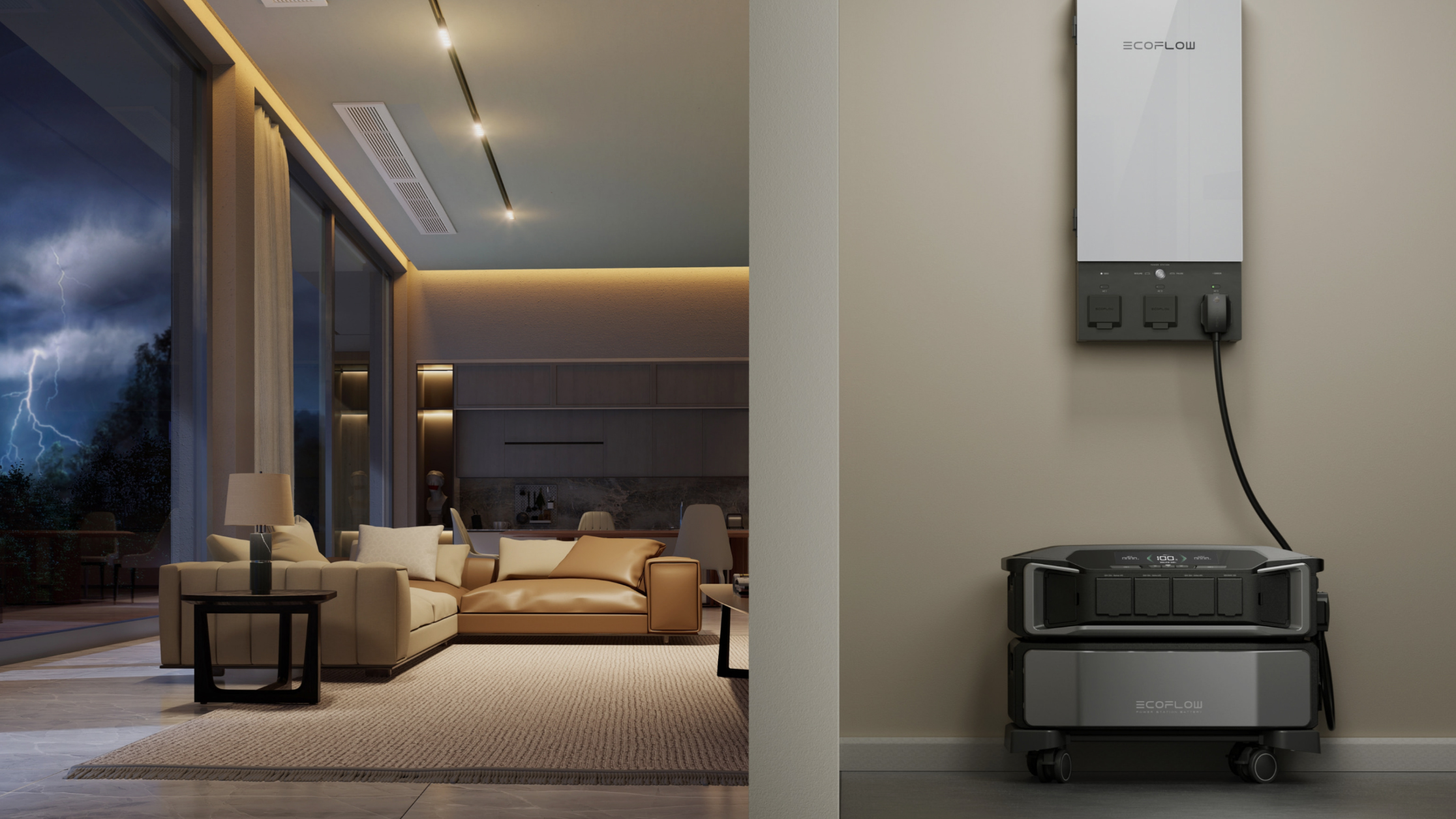
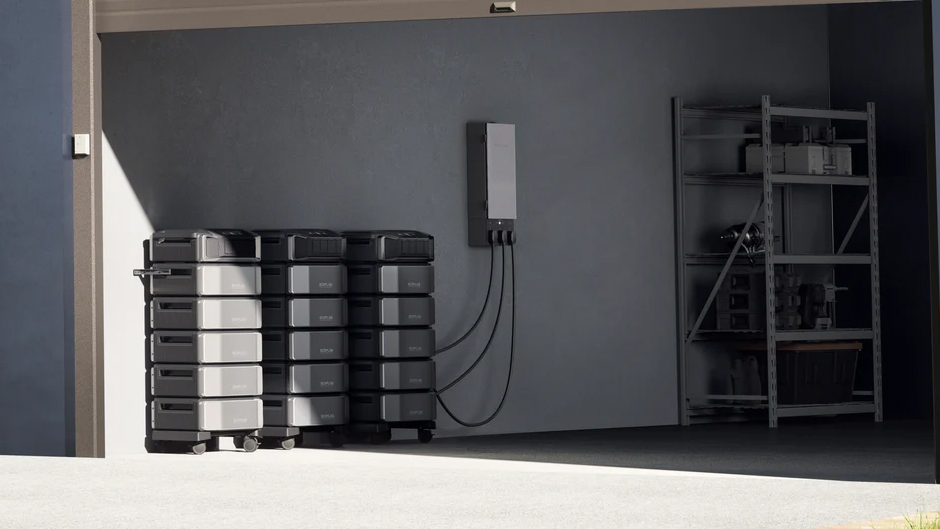
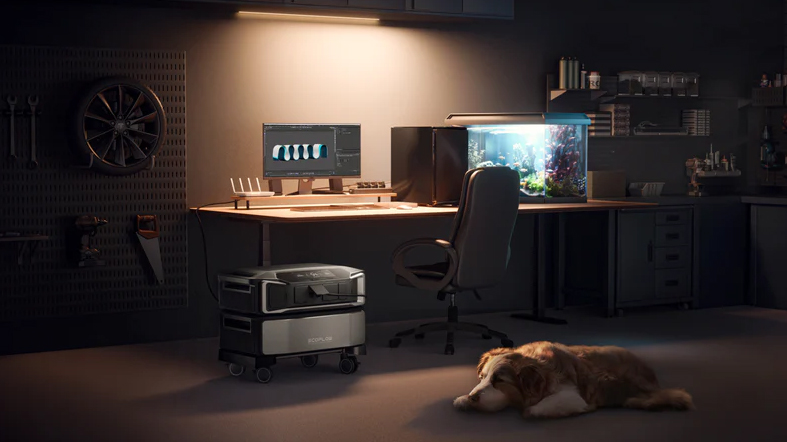
With blackouts and power outages becoming as common as extreme weather events, home batteries that are effectively giant smartphone power banks are becoming more popular – and the Ecoflow Delta Pro Ultra is one of the best, and most versatile, so far.
The Delta Pro Ultra can be used as both an emergency backup and also a (relatively) portable battery for all of your daily or EV needs. With a power capacity of 6kWh and a 7200W output (plus 5.6kW of solar input), it's capable of powering your whole home, or intelligently offsetting your daily energy costs. It'll also give your EV a handy top-up and you can stack multiple batteries, too.
But the Delta Pro Ultra can also be detached from its Smart Home Panel 3 based and wheeled around on its base to wherever you need a power. It has tons of outlets, including two with USB-C, two more with USB-A, four standard 120V outputs and more.
Naturally, it isn't cheap at $4,999 (around £3,925 / AU$7,465) for a single inverter and battery kit, plus $1,599 (around £1,255 / AU$2,390 for the Smart Home Panel 2 (which integrates it with your house). But you can buy both together for $7,199 (£5655 / AU$10,750) in the US and it's hard to think of a more useful home gadget.
We’re covering all of the latest CES news from the show as it happens. Stick with us for the big stories on everything from 8K TVs and foldable displays to new phones, laptops, smart home gadgets, and the latest in AI.
And don’t forget to follow us on TikTok for the latest from the CES show floor!







